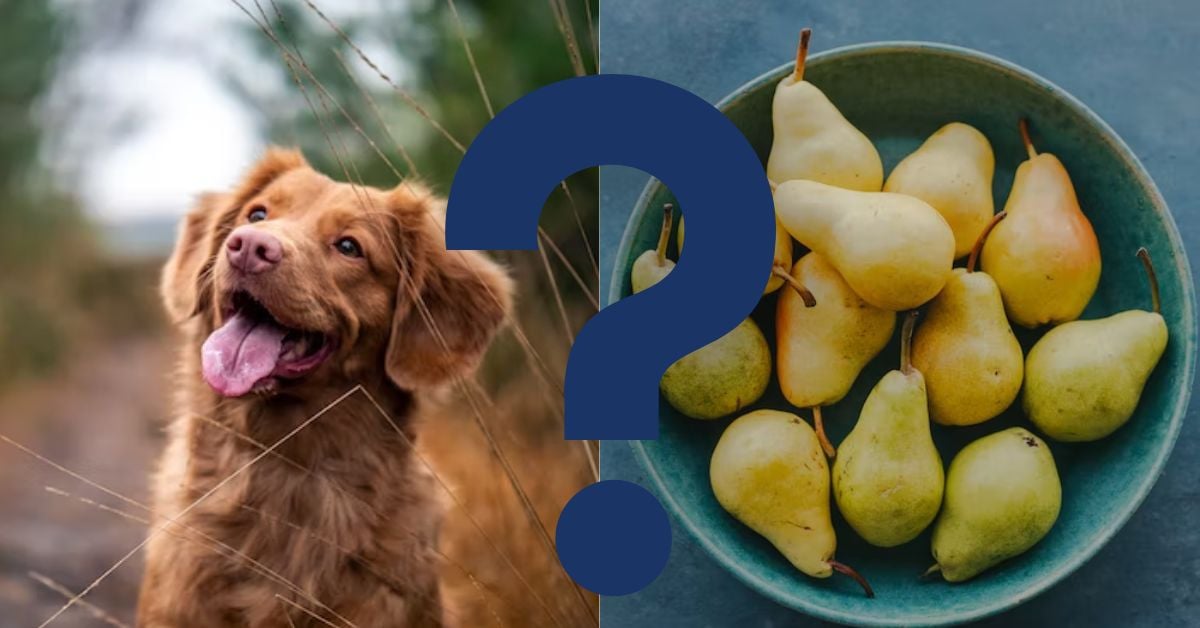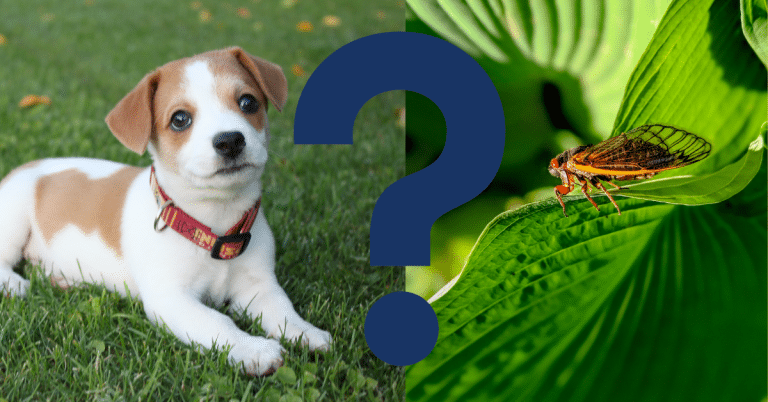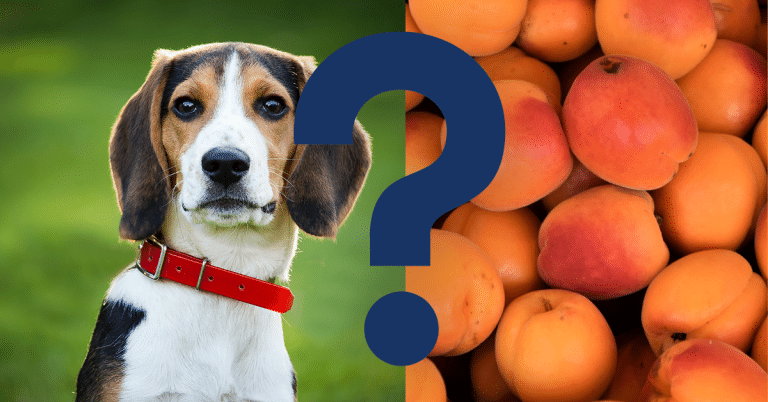Can Dogs Eat Pears? A Vet’s Opinion

Pears are a tasty and healthy fruit that dogs can enjoy as a snack. Pears can be a nutritious substitute for typical dog treats because they are low-calorie and low-fat snacks. Also, they include a lot of fiber, vitamins, and minerals, all of which are good for dogs’ health.
Pears are a nutritious treat that may be given to dogs in small amounts. Both people and dogs can enjoy pears as a nutritious snack. The amount of pear given to dogs as a snack must be carefully chosen. Pears should, like all treats, be given to dogs in moderation as part of a balanced diet, which is crucial to keep in mind. A veterinarian should always be consulted before making dietary changes for dogs.
Benefits Of Pears For Dogs
With a fantastic source of vitamins and minerals, pears are an excellent food for dogs. Pears are a fantastic choice for dogs who need to maintain a healthy weight because they are low in calories and fat. They also include a lot of fiber, which can improve digestion and control bowel motions. Vitamins C and K, which are found in pears, can strengthen a dog’s immune system, and support healthy blood coagulation. Pears are also a good source of copper, which is necessary for the growth of strong bones and connective tissue. Flavonoids, another type of antioxidant found in pears, can help prevent cell deterioration and lessen inflammation. Pears can offer a dog’s diet several significant nutritional advantages, some of which are listed below:
- Pears are a great source of dietary fiber and are high in fiber. Fiber encourages a healthy digestive system, assists in controlling bowel motions, and lowers the risk of constipation. Dogs with sensitive stomachs should pay special attention to this since it can help prevent digestive problems like diarrhea.
- Low in fat: Pears naturally contain less fat, making them a great treat for dogs who are trying to lose weight. They can assist in keeping your dog at a healthy weight and are a healthy substitute for treats that are high in fat.
- Pears are a good source of antioxidants, which aid in preventing cell deterioration brought on by free radicals. A variety of health issues, including cancer, heart disease, and arthritis, can be attributed to free radicals. Moreover, antioxidants help strengthen the immune system and advance general health.
- Pears are a good source of vitamin C, an essential component that promotes collagen formation, wound healing, and immune system activity. Moreover, vitamin C functions as an antioxidant, assisting in preventing cell deterioration brought on by free radicals.
- Potassium: Pears contain a lot of this essential mineral, which is crucial for many body processes. Potassium supports proper cardiac function, neuron and muscle function, and blood pressure regulation.
- Pears are a hydrating food since they can contain up to 84% water. In warmer weather or while your dog is exercising, it’s extremely important to keep your dog hydrated for overall health. Pears can be a delightful and healthful way to help your dog stay hydrated.

How To Safely Give Pears To Dogs?
- Start with little portions: To prevent upsetting your dog’s stomach when introducing any new food to their diet, it is imperative to start with small amounts. Give your dog one or a few little slices of pear and watch their reaction.
- Pears include seeds and a core that can be a choking hazard for dogs, so remove them. When giving your dog any pears, make sure to remove the core and seeds.
- Dogs may have trouble digesting vast pieces of fruit, which can lead to stomach discomfort or choking. So, cut the pear into small pieces. To make the pear easier for your dog to consume and digest, cut it into small, bite-sized pieces.
- Like many fruits, pears could contain pesticides or other chemicals that are dangerous to dogs, so wash the pear well. Before feeding the pear to your dog, make sure to wash it carefully.
- Give pears as a treat or a snack; do not use pears in place of your dog’s usual food. Provide them in moderation as a healthful treat or snack.
- Get advice from your veterinarian: When introducing new foods to your dog’s diet, it’s always a good idea to check with your veterinarian if your dog has any underlying health conditions or dietary restrictions. If pears are a safe and suitable addition to your dog’s diet, your veterinarian can provide you with advice on that.
Dogs can benefit from eating pears because they are a fruit that is high in nutrients. As a good source of fiber, they can support a healthy digestive system and ward off constipation. Pears are a fantastic choice for overweight dogs or those with sensitive stomachs because they are low in calories and fat. Pears are also rich in copper and vitamins C and K, which can strengthen a dog’s immune system and encourage healthy blood circulation. Pears can be a choking hazard and contain trace quantities of cyanide, so it’s crucial to remember to offer dogs pears sparingly and without the seeds.
Will Pears Make A Dog Sick
When given in moderation and under the right conditions, pears are typically regarded as being safe for dogs. Pears can harm a dog’s health, though, if given in excess or at the wrong time, just like any food. These are some possible concerns to think about:
Firstly, pears contain natural sugars, and dogs who eat too much sugar may have digestive problems like diarrhea, vomiting, and upset stomach. Dogs who already have digestive problems or diabetes may be particularly sensitive to the natural sugars found in pears. The moderate quantity of fiber found in pears, which is also good for dogs’ digestive health, is another factor. Nevertheless, consuming too much fiber too soon might cause dogs to have digestive issues like diarrhea or constipation. To prevent stomach problems, it is essential to gradually and in modest doses add pears to your dog’s diet.
Finally, pear seeds and cores contain minute amounts of cyanide, which is poisonous to dogs if taken in significant amounts. This is why it’s crucial to take the seeds and core out of any pears before giving them to your dog. Moreover, symptoms, including respiratory problems, convulsions, and even coma, may appear in dogs who consume a lot of pear seeds.

Vet’s Summary
In general, pears are safe for dogs to eat, but they should be given in moderation and with caution. Pears are a good source of fiber, vitamins, and minerals, but they also contain natural sugars that can cause stomach upset and diarrhea if eaten in large quantities.
Moreover, the seeds and core of the pear contain trace amounts of cyanide, which can be toxic to dogs if ingested in large quantities. So, it’s important to remove the seeds and core before giving pears to your dog.
If your dog has never had pears before, it’s a good idea to introduce them slowly in small amounts to see if they have any adverse reactions. If your dog shows any signs of digestive distress or allergies, such as vomiting, diarrhea, or itching, stop giving them pears and consult with your veterinarian. Overall, while pears can be a healthy and tasty treat for dogs, it’s essential to give them in moderation and with caution to avoid any potential health issues.
Videos To Watch
To provide further clarification on the topic of giving pears to dogs. You may watch the videos listed below; this will help provide clarity on the health benefits of pears for dogs:






